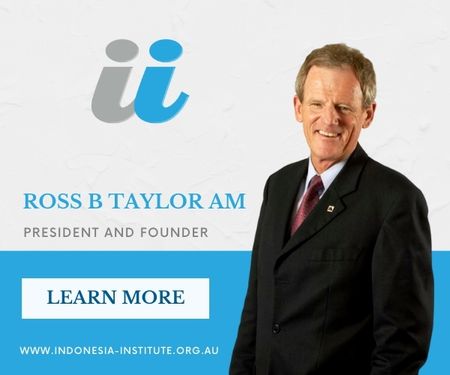BY: Dr. MICHAEL PATCHING
The current situation in Indonesia is already having a huge impact on Australian producers in the north and is another blow to the live export sector. In my opinion we still fail to understand how Indonesia, and Asia in general, works. Or more specifically we rely too heavily on political solutions to trade issues. There is a clear breakdown in political trust and our lack of genuine Australian presence overseas is being felt.
As a brief update on what has transpired over the last year – Indonesia began getting LSD infections in March 2022 which had spread rapidly from Malaysia across the archipelago. The regional and Indonesian weather results in winds blowing east from December-March which then flip to the monsoons blowing from June through September. So the main reason we haven’t seen much movement of LSD in Indonesia and the reason it is unlikely to be in Australia is due to the direction the wind has been blowing.
Since that time we taught them how to identify LSD through a number of diagnostic techniques, including by identifying skin lesions. The Indonesians are now identifying animals on arrival with skin lesions, and flagging them as possible LSD cases. When they are then tested several days later, a small percentage test positive. Of course those animals likely contracted the disease after arrival or in response to vaccination.
Several quarantine yards in Australia are now being closed as more animals are being seen with skin lesions and testing positive for LSD. There is no political agenda in the response by Indonesia. I have heard one industry member describe it as ‘providing someone with a gun and then getting surprised when they shoot you’.
The Australian response has largely been a quiet political and logical approach to resolving the issue. And from a political perspective this is the correct and logical diplomatic approach. We saw evidence of this approach with the testing of cattle in Australia, and we have seen it again with the position on selecting cattle without skin lesions.
Testing feeder or slaughter cattle in a trade with very small margins anyway is just not financially feasible. The cost of testing (staff), the time required to stay in the quarantine yards, the cost of the test itself, and there are practical difficulties in doing it. Not to mention the acceptance of the results anyway. Or the likelihood that cattle will be tested in Indonesia anyway and that will only confound the issue when they have the same positive results they are getting now.
And now we have a high percentage of cattle that may be rejected because they have some skin lesions. This is estimated to be about 30 percent on some shipments depending how hard they draft the cattle and could be higher in some lines of cattle.
Given the current oversupply of cattle into the domestic system, and the fact that these northern cattle have genetics specifically suited to live export and not the domestic or export trades, means that we are now facing a significant market scenario where cattle will have to be held over or somehow find a new home. We are already hearing cattle being sold for $1.50/kg liveweight in the NT.
Where did all the Australians go?
If the reliance on the government is not the solution then what is? Following the events in 2011, the Australian presence grew overnight. There was a high level of oversight of operations and improvements of facilities. This lasted for the next 10 years as many of these young people found partners, learned Bahasa Indonesian, lived for periods of time in supply chains, MLA had Australian born staff in management, and their was investment made into this. But the trade has experienced the impacts of COVID on travel, the loss of some key people living in Indonesia through retirement or movement into other positions, there has been reduced profit which has reduced exporter budgets for staff, and more recently we have seen a drop in consumer demand in the traditional distribution sector. MLA, exporters, and the Australian training programs have likewise empowered local Indonesians, and this is a great thing, and they do a great job.
But the simple truth is that we need Australian presence and relationships in Indonesia. Indonesian provincial vets are not getting any information from Australia about what is happening. And when those local vets, who are making an income off testing, are getting information from Australia reports are they are not feeling respected. In the past a dinner or long existing relationships may have been able to solve these issues before this point of escalation.
But for all of Australia’s geographical advantages to Asia, Australia has a small footprint of people living in the entire region. Business is done face to face from long term relationships. And all the key trading partners China, Japan, France, Germany, Netherlands, all run very controlled international businesses in Asia because they have their own staff physically present to manage and oversee operations.
I am not sure how to navigate the way out of this situation politically. But there is a lot to be said about listening and spending time to understand where the other person is coming from. And what their needs really are. And not at the top level of politics, this also needs to happen with the vets on the ground who are making the decisions about which animals have disease.
AUTHOR:
Dr Michael Patching is an Australian veterinarian who has been based in Vietnam and Singapore over the past decade, initially with Meat & Livestock Australia and more recently running his own trade intermediary business based in Singapore. He is also the author of the South East Asian Beef Report which is published monthly on Beef Central.






